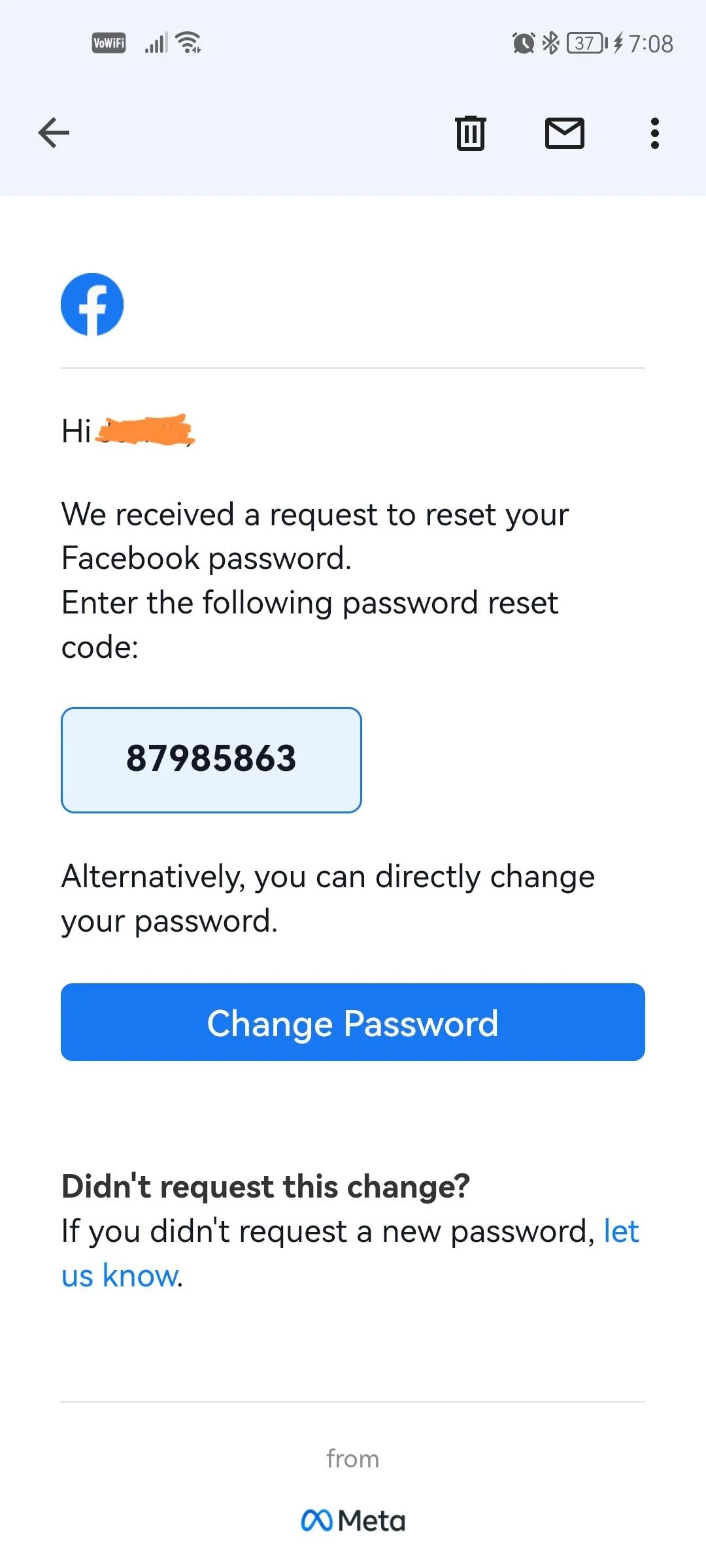In today's digital age, social media platforms like Facebook have revolutionized the way we communicate and connect with others. However, this convenience also comes with its fair share of risks, particularly in the form of email scams. Facebook email scams are deceptive tactics employed by cybercriminals to exploit unsuspecting users. These scams can lead to identity theft, financial loss, and a host of other security issues. Understanding the nature of these scams and how to protect yourself is crucial in navigating the online landscape safely.
One of the most alarming aspects of Facebook email scams is their ability to mimic legitimate communications from the platform. Scammers often create fake emails that appear to come from Facebook, complete with official logos and language designed to instill trust. Users may receive notifications about suspicious account activity, friend requests, or even prize winnings, all intended to lure them into a trap. Recognizing these fraudulent messages is essential for safeguarding personal information and maintaining online security.
As the tactics used by scammers continue to evolve, awareness and vigilance are more important than ever. This article will delve into the various aspects of Facebook email scams, including their characteristics, common types, and effective strategies for prevention. By understanding the signs of a scam and knowing how to respond, users can better protect themselves from falling victim to these malicious schemes.
What Are Facebook Email Scams?
Facebook email scams are fraudulent emails that appear to originate from Facebook but are actually sent by cybercriminals. These emails often aim to deceive recipients into providing personal information, such as passwords, credit card numbers, or social security details. Scammers employ various tactics, including phishing, to trick users into clicking on malicious links or downloading harmful attachments.
How Do Facebook Email Scams Work?
These scams typically involve a few key steps:
- **Crafting a Fake Email:** Scammers create an email that looks official, often using Facebook's branding and language.
- **Creating Urgency:** The email may contain alarming messages about account security or enticing offers that prompt immediate action.
- **Phishing Links:** The email includes links that direct users to counterfeit websites designed to capture sensitive information.
- **Data Theft:** Once users provide their information, scammers can use it for identity theft or to gain unauthorized access to accounts.
What Types of Facebook Email Scams Exist?
Several common types of Facebook email scams can affect users:
- **Phishing Scams:** Emails that trick users into revealing personal information.
- **Account Suspension Scams:** Emails claiming that an account will be suspended unless immediate action is taken.
- **Prize or Reward Scams:** Messages congratulating users on winning a prize, often requiring personal information to claim the reward.
- **Friend Request Scams:** Emails indicating that someone has sent a friend request, leading to malicious links.
How Can You Identify Facebook Email Scams?
Identifying Facebook email scams can be straightforward if you know what to look for:
- **Check the Sender's Email Address:** Official emails from Facebook will come from an '@facebook.com' address.
- **Look for Generic Greetings:** Scammers often use generic terms like "Dear User" instead of your name.
- **Examine the Links:** Hover over links to see the actual URL before clicking. If it looks suspicious, don't click.
- **Watch for Poor Grammar:** Many scam emails contain spelling and grammatical errors, which can be a red flag.
What Should You Do If You Receive a Suspected Scam Email?
If you suspect that an email is a scam, take these steps:
- **Do Not Click Any Links:** Avoid interacting with the email until you verify its authenticity.
- **Report the Email to Facebook:** Use Facebook’s reporting tools to flag the email as a scam.
- **Delete the Email:** Once reported, delete the email from your inbox to avoid accidental clicks in the future.
- **Change Your Password:** If you’ve already clicked on links or provided information, change your Facebook password immediately.
Can You Prevent Facebook Email Scams?
While it's impossible to completely eliminate the risk of scams, there are preventive measures you can take:
- **Enable Two-Factor Authentication:** Adding an extra layer of security makes it harder for scammers to access your account.
- **Educate Yourself:** Stay informed about the latest scams and tactics used by cybercriminals.
- **Use Strong Passwords:** Create complex passwords that are difficult to guess and change them regularly.
- **Think Before You Click:** Always be cautious with links in emails, especially if they seem unusual or unexpected.
Are There Any Resources for Reporting Facebook Email Scams?
Yes! Facebook provides several resources to help users report scams:
- **Facebook Help Center:** Offers guidance on identifying and reporting scams.
- **Phishing Reporting Tools:** Users can report phishing attempts directly through Facebook.
- **Consumer Protection Agencies:** Organizations like the Federal Trade Commission (FTC) provide resources for reporting scams.
What Are the Consequences of Falling for Facebook Email Scams?
Falling victim to Facebook email scams can lead to serious consequences, including:
- **Identity Theft:** Scammers may use your information to impersonate you.
- **Financial Loss:** Unauthorized transactions can occur if scammers gain access to financial information.
- **Loss of Access to Your Account:** Scammers may change your password and lock you out of your Facebook account.
- **Long-Term Credit Issues:** Identity theft can lead to long-term damage to your credit score.
Conclusion: Staying Vigilant Against Facebook Email Scams
As the digital landscape continues to evolve, so do the threats posed by Facebook email scams. Staying informed and vigilant is the best defense against these deceitful tactics. By understanding the nature of these scams, recognizing the warning signs, and taking proactive measures, users can protect themselves from falling victim to cybercriminals. Remember, when in doubt, it’s always better to verify before clicking.
Understanding RV Rent Price: What You Need To Know
Unraveling The Mystery: Does Norman Reedus Have A Wife?
Mastering The Art Of Opening JNLP Files: A Comprehensive Guide


